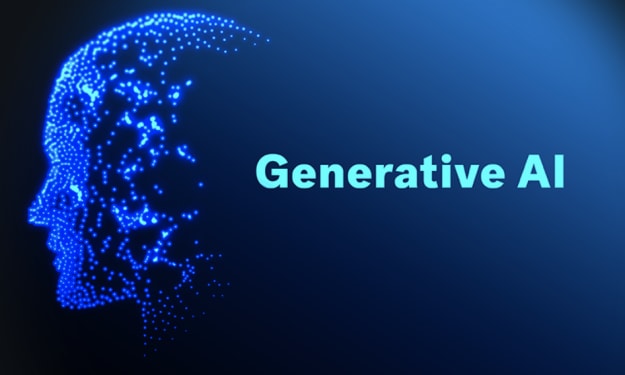
What is Artificial Intelligence (AI)?
Artificial Intelligence (AI) is the simulation of human intelligence processes by computer systems. This involves the development of algorithms and computer programs that can perform tasks that usually require human intelligence, such as visual perception, speech recognition, decision-making, and language translation. AI is a broad field that encompasses various subfields such as machine learning, natural language processing, computer vision, robotics, and more. AI has the potential to transform many aspects of our lives and industries, including healthcare, finance, transportation, and entertainment.
What are some of the latest AI developments and how are they being applied in different industries?
Artificial Intelligence, commonly known as AI, is rapidly advancing and transforming many industries. This technology uses machine learning algorithms and data to learn and adapt, allowing it to improve performance and accuracy over time.
One of the latest developments in AI is natural language processing (NLP), which enables machines to understand and interpret human language. NLP is already being used in a wide range of applications, such as chatbots, voice assistants, and language translation. It has the potential to revolutionize communication and make it easier for people to interact with machines.
Another significant advancement in AI is computer vision, which allows machines to interpret and analyze visual information. With computer vision, machines can recognize objects, people, and even emotions from images or videos. This technology is already being used in applications such as facial recognition, autonomous vehicles, and security systems.
Machine learning is also a critical area of AI that is seeing rapid advancements. Machine learning algorithms can learn from data and improve performance over time without being explicitly programmed. This technology has many applications, such as fraud detection, personalized marketing, and predictive maintenance in industrial settings.
These latest AI developments have numerous applications across various industries. In healthcare, AI is being used to develop more accurate diagnostic tools and personalized treatments for patients. In finance, AI is used for fraud detection and predictive analytics to improve investment decisions. In entertainment, AI is used for personalized recommendations for movies and music, as well as creating more realistic virtual characters.
However, as with any new technology, there are concerns about the ethical implications of AI. Some worry that AI could be used to automate jobs and replace human workers, while others raise concerns about privacy and the potential misuse of personal data.
In conclusion, AI is a rapidly evolving technology that has the potential to revolutionize various industries. Natural language processing, computer vision, and machine learning are just a few of the latest advancements in this field, and they have numerous applications across multiple sectors. However, it's crucial to ensure that the ethical implications of AI are taken into account as this technology continues to evolve and shape our world.
Artificial Intelligence (AI) is a rapidly evolving technology that has the potential to revolutionize various industries. The latest developments in AI include natural language processing (NLP), computer vision, and machine learning. NLP enables machines to understand and interpret human language, while computer vision allows machines to analyze visual information. Machine learning algorithms can learn from data and improve performance over time without being explicitly programmed. These advancements have numerous applications across various industries, such as healthcare, finance, and entertainment.
In healthcare, AI is being used to develop more accurate diagnostic tools and personalized treatments for patients. AI is also being used in finance for fraud detection and predictive analytics to improve investment decisions. In entertainment, AI is used for personalized recommendations for movies and music, as well as creating more realistic virtual characters. However, as with any new technology, there are concerns about the ethical implications of AI. Some worry that AI could be used to automate jobs and replace human workers, while others raise concerns about privacy and the potential misuse of personal data.
NLP, computer vision, and machine learning have the potential to offer numerous benefits. NLP could revolutionize communication and make it easier for people to interact with machines, while computer vision can recognize objects, people, and even emotions from images or videos. Machine learning has many applications, such as fraud detection, personalized marketing, and predictive maintenance in industrial settings.
To address the concerns about the ethical implications of AI, it's essential to ensure that AI is developed and implemented responsibly. This includes taking steps to ensure that AI is transparent and accountable, and that its impact on society is carefully considered. It's also important to ensure that AI is used to enhance human capabilities, rather than replace them.
In the future, AI is likely to continue to evolve and have a significant impact on society. As AI becomes more sophisticated, it has the potential to transform industries and create new opportunities for innovation and growth. However, it's essential to ensure that the ethical implications of AI are taken into account as this technology continues to evolve and shape our world.
About the Creator
Niterria
Welcome to Niterria Tech Blog, your go-to destination for the latest updates and insights in the world of technology.






Comments
There are no comments for this story
Be the first to respond and start the conversation.